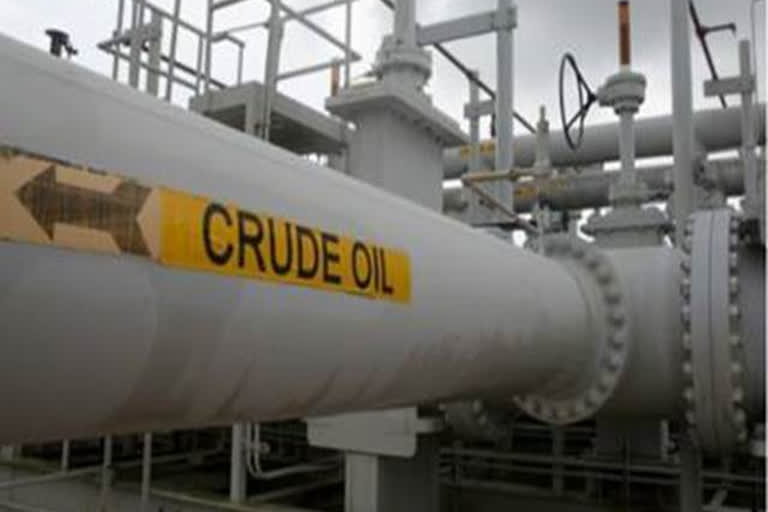2015ஆம் ஆண்டு மார்ச் மாதம் 'உர்ஜா சங்கம்' என்ற கருத்தரங்கில் பங்கேற்று பேசிய பிரதமர் மோடி நாட்டின் எண்ணெய் தேவையை பெருமளவில் குறைக்க திட்டமிட்டுள்ளதாக கூறினார். அவர் பதவியேற்ற 2014 ஆம் ஆண்டு காலகட்டத்தில் இந்தியா, 77 சதவிகித கச்சா எண்ணெய் தேவைக்காக வெளிநாடுகளை சார்ந்திருந்தது. இதை 2022 ஆம் ஆண்டுக்குள் 67 சதவிகிதமாக குறைப்பதாக உறுதியளித்தார்.
ஆனால் தற்போது நிலைமையோ தலைகீழாக மாறியுள்ளது. கச்சா எண்ணெய் சார்ந்த புள்ளிவிவரங்களை அளிக்கு பி.பி.ஏ.சி(P.P.C.A) என்ற அமைப்பு தற்போது புள்ளிவிவரங்களை வெளியிட்டுள்ளது. அதன்படி, தற்போதைய நிலையில் 84 சதவிகித கச்சா எண்ணெய் தேவைக்காக இந்தியா வெளிநாடுகளை சார்ந்திருப்பதாக தெரிவித்துள்ளது. 2014ஆம் ஆண்டு பிரதமர் உறுதியளித்தற்கு மாறாக இந்தியாவின் தேவை 7 சதவிகிதம் அளவிற்கு அதிகரித்துள்ளது.
அத்துடன் இந்தியாவின் கச்சா எண்ணெய் நுகர்வும் 184.7 மில்லியன் டன்னிலிருந்து 194.6 மில்லியன் டன்னாக தற்போது உயர்ந்துள்ளது. இந்நிலையில், ஈரான், வெனிசுலா போன்ற நாடுகளிடம் இருந்து மற்ற நாடுகள் எண்ணெய் இறக்குமதி மேற்கொள்ளக்கூடாது என அமெரிக்க அதிபர் ட்ரம்ப் அதிரடி உத்தரவு பிறப்பித்துள்ளார். இது இந்தியாவுக்கு மேலும் நெருக்கடியை தரும் என எதிர்பார்க்கப்படுகிறது. தேர்தலுக்குப்பின் பெட்ரோல், டீசல் விலையில் அதிரடி உயர்வு இருக்கும் எனவும் தகவல்கள் வெளியாகியுள்ளன.
Intro:Body:
According to the source, both Finance Ministry and DoT are of the view that there may not be any need to consider financial support to the companies for VRS since the employees of these telcos are covered by the government pension rules relevant for CPSEs carved out of ministries.
New Delhi: The Finance Ministry has asked the Department of Telecommunications (DoT) to re-examine the revival proposals for the telecom firms BSNL and MTNL and submit these to the new government that will take office after the ongoing general elections, a senior official source said on Tuesday.
This implies, according to the source, that there is no immediate move, in the next few months till a new government settles down, to revive both central public sector enterprises (CPSEs).
Last month, the DoT had floated a draft cabinet note for consultation among ministries on the revival of BSNL and MTNL.
In response, the Finance Ministry has now asked the DoT to rework the proposals, indicating both the steps and the financial outgo involved and submit these to the new government.
The two key issues in the revival proposal are the voluntary retirement scheme (VRS) and allocation of 4G spectrum.
According to the source, both Finance Ministry and DoT are of the view that there may not be any need to consider financial support to the companies for VRS since the employees of these telcos are covered by the government pension rules relevant for CPSEs carved out of ministries.
Both BSNL and MTNL have been carved out of DoT.
The issue of allocation of 4G spectrum has also been left for the consideration of the next government at the Centre, the source added.
Another key component of the revival proposal concerns the monetisation of the assets of BSNL and MTNL.
According to the source, it is to yet to be decided as to who, between the Department of Investment and Public Asset Management (DIPAM) and the DoT, will carry out the mutation process involved in monetising assets.
Mutation is the recording of a transfer of title of a property from one person to another in the revenue records. The documentation procedure to be followed and the fee payable in mutation varies from state to state.
Read more:Union threatens industrial action over Jet issue
DIPAM has an asset monetisation framework which lays down the procedures for the administrative ministries to follow in selling off CPSE assets.
The titles to the lands and buildings of BSNL and MTNL are still with the DoT.
Both companies have sought spectrum for 4G services through equity infusion from the government.
BSNL, which has the lowest debt of Rs 14,000 crore among all telecom operators, has sought 4G spectrum across India through equity infusion of Rs 7,000 crore. The total cost of the spectrum will be Rs 14,000 crore
Both firms have asked for a VRS for employees similar to the Gujarat model.
The VRS scheme for BSNL and MTNL will have a respective revenue impact of Rs 6,365 crore and Rs 2,120 crore.
Conclusion:



